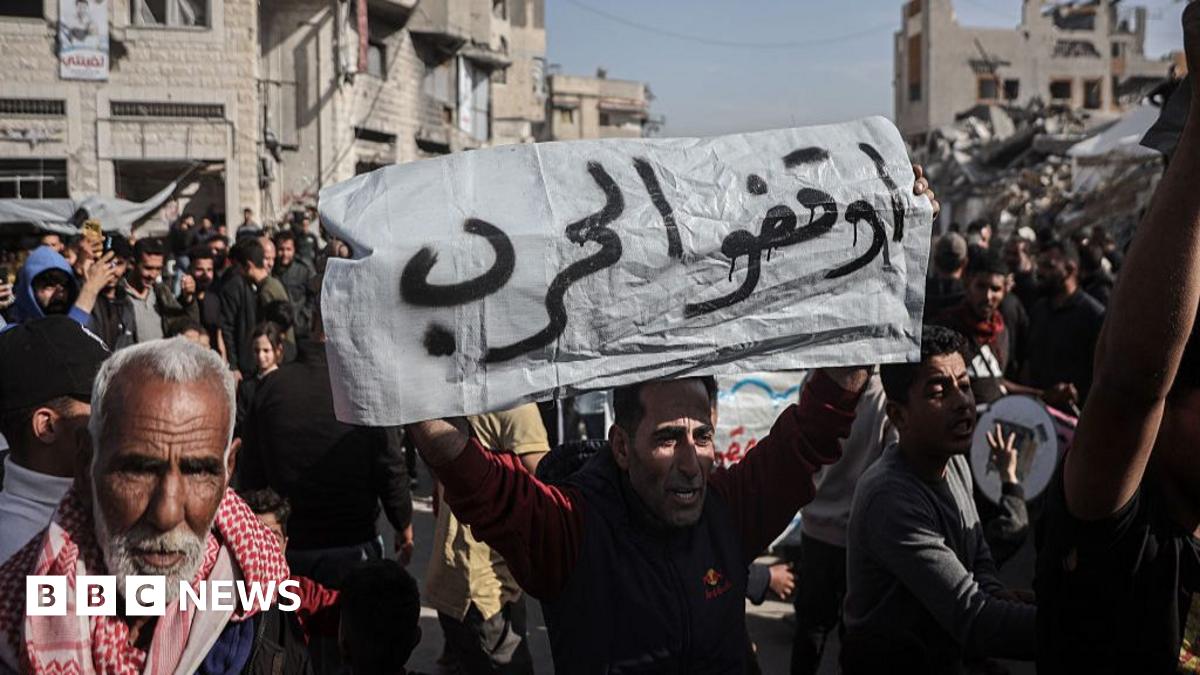Gaza Residents Defy Hamas: Power Shift?
A growing wave of dissent against Hamas in Gaza raises questions about the group's long-held grip on power. Recent protests and social media activity suggest a potential shift in the political landscape, prompting speculation about the future of the besieged territory.
The simmering discontent, fueled by worsening economic conditions and ongoing power outages, is manifesting in unprecedented ways. For years, Hamas' iron fist has suppressed any form of public opposition. However, the increasingly bold defiance seen recently indicates a growing frustration that may be challenging the group's authority.
The Spark of Resistance: Economic Hardship and Power Failures
Gaza's economic situation is dire. Years of blockade and internal conflicts have crippled the local economy, leading to widespread unemployment and poverty. Chronic power shortages exacerbate the already challenging living conditions, leaving residents struggling with limited access to essential services like clean water and healthcare.
- Lack of Essential Services: Frequent power outages disrupt water supplies, impacting sanitation and increasing the risk of disease outbreaks.
- High Unemployment: The unemployment rate in Gaza remains staggeringly high, particularly among young people, fueling resentment and desperation.
- Limited Access to Healthcare: Power outages impact hospitals and clinics, hindering the provision of critical medical care.
These factors have created a fertile ground for dissent, leading to several recent protests, albeit small-scale, that openly criticize Hamas' governance. These demonstrations, while quickly dispersed by security forces, represent a significant departure from the typical passive acceptance.
The Role of Social Media: Amplifying Dissenting Voices
Social media platforms have become crucial channels for expressing discontent, bypassing the traditional media restrictions imposed by Hamas. Hashtags like #GazaNeedsChange and #EndTheBlockade are trending, revealing a level of public frustration not previously visible.
- Anonymous Accounts: Many dissidents use anonymous accounts to avoid repercussions from Hamas security forces.
- Viral Videos and Images: Graphic images and videos showcasing the dire conditions in Gaza are rapidly spreading, garnering international attention.
- Organized Online Campaigns: Several online campaigns are demanding greater accountability and transparency from Hamas.
While the extent of social media's impact on the ground remains to be seen, its ability to amplify dissenting voices and expose the reality on the ground cannot be underestimated.
A Power Shift or Fleeting Dissent?
Whether this recent wave of defiance signifies a genuine power shift remains uncertain. Hamas retains a strong security apparatus and a long history of suppressing dissent. However, the increasing boldness of the protests and the effective use of social media suggest a growing willingness to challenge the status quo.
Several experts believe that while a complete overthrow of Hamas is unlikely in the near future, the current unrest demonstrates a growing crack in its authority. The long-term implications are uncertain, but the current situation highlights the fragility of Hamas' grip on power and the urgent need for lasting solutions to Gaza's humanitarian crisis.
What's Next for Gaza?
The future of Gaza remains uncertain, but the recent wave of dissent signals a potentially significant turning point. The international community must play a critical role in addressing the underlying issues driving this unrest, including easing the blockade and promoting sustainable economic development. Only through a comprehensive approach addressing both the political and humanitarian crises can a lasting solution be found.
Keywords: Gaza, Hamas, protest, dissent, power shift, economic crisis, blockade, social media, human rights, humanitarian crisis, Middle East politics.

